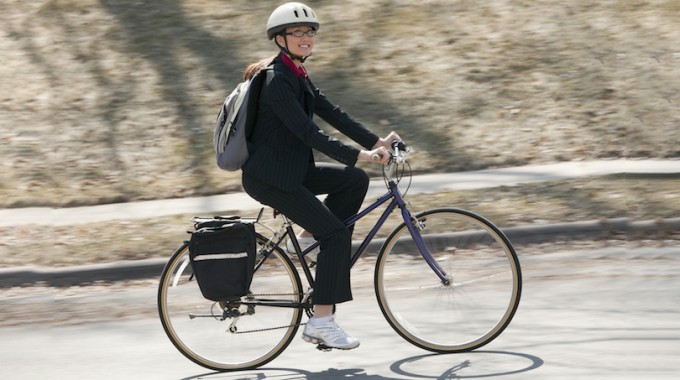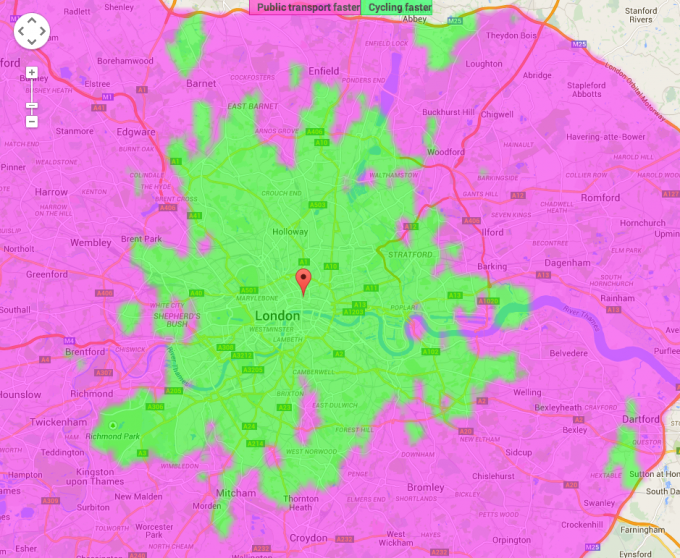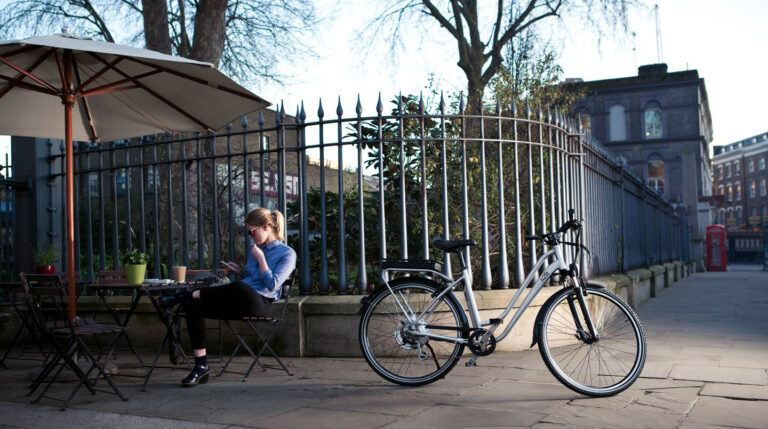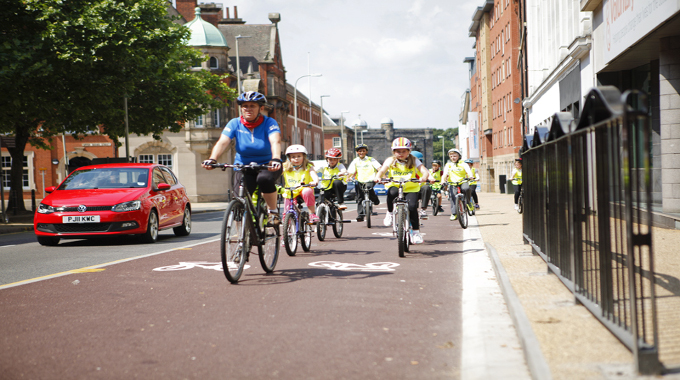
Will it take me longer to get to work on my bicycle?
Obviously, the answer to this depends on where you live and how far your commute is. But for the sake of argument, we’re going to look at the general efficiency of cycling to work over various distances in the context of both time and effort.
Under 6 miles
If your commute is under 6 miles, then it’s almost a complete certainty that cycling will be quicker than driving or getting public transport, even if you’re going at a relatively slow pace. The amount of time spent faffing around looking for a car park/waiting for the bus adds a lot of time to a journey that could be completed comfortably on a bicycle.
The other great thing about a shorter commute is that you don’t have to do anything special to prepare for it. Like a beautiful Dutch goddess, you can hop on your steed and head towards the office.
6 to 12 miles
If you’re commute is between 6 and 12 miles then yes, driving to work may be quicker. However, this is also the bracket where cycling really comes into its own if you live in a city. Whereas a suburban or rural commute will take moments in the car, a 6 mile commute in the city could mean an hour or more of your time. London is the most profound example of the traffic-beating capabilities of the bicycle, with this amazing data set from the Guardian showing just how often it is quicker for you to cycle a route rather than take public transport.
Here’s a map showing routes from the TWC office. Green indicates that a bicycle would get you to that destination more quickly. For context – Edmonton cemetery is just within the northern-most tips of the main green blob and it is 9.3 miles from the office.

Over 12 miles
So yeah, at this point driving or public transport might be quicker in many parts of the UK. You also have to worry about more stuff, like packing food and considering using cycle-specific clothing. Also, you should, in theory, be able to cycle all day if you go slow enough and have an appropriate riding position. But newbies might be intimidated by the distance and prefer to do some practice runs first. So this length of a commute could take longer than the commute itself, if you need to factor in practice.
But here it’s worth considering the years that could be added to your life by keeping fit on your bicycle. A Danish study of 30,000 people over nearly 15 years found that cycling to work, even when accounting for other exercise completed by participants, lowered the risk of mortality by 40%.
Not only will you avoid traffic jams, accidents, cancellations and fuel costs, you’ll also be improving your health dramatically.





